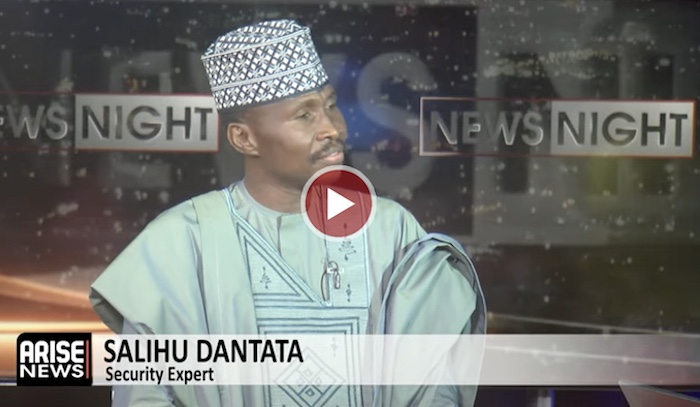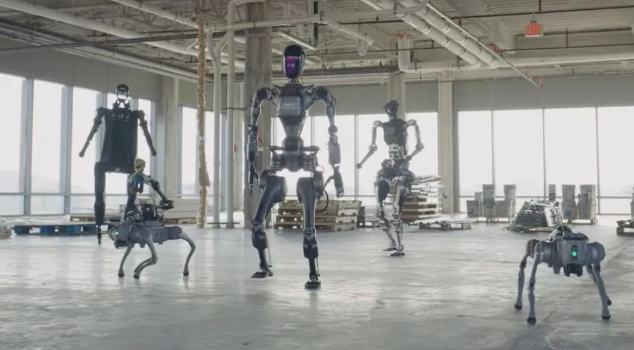

Security expert, Salihu Dantata, says President Bola Ahmed Tinubu’s decision to remove and redeploy service chiefs came as a surprise but remains within his constitutional powers as Commander-in-Chief.
Speaking on ARISE News on Friday, Dantata said the president acted within his right to reconstitute the nation’s security leadership in order to strengthen Nigeria’s security architecture.
“It came as a surprise. But the President, as Commander-in-Chief, has the constitutional right to relieve anyone he feels, whether service chiefs, Inspector General of Police, or heads of paramilitary agencies,” he said.
“World over, this is the practice. Once you appoint service chiefs and you are not getting the expected results, you relieve them and bring in others.”
Dantata explained that the change demonstrates President Tinubu’s decisiveness and willingness to act when necessary.
“President Tinubu is trying to show Nigerians that he is not just a ‘Sidon look’ leader. He is saying, ‘I know my right as Commander-in-Chief. Once I appoint you, it’s not for you to just drive around with sirens and escorts, but to deliver results.’”
The security expert noted that the president’s move may have been influenced by the need for vigilance, following rumours of an alleged attempted coup, although the Defence Headquarters had debunked such claims.
“Whether true or not, the mere rumour of a coup shows the need for vigilance. There is no smoke without fire. Many top security officers only try to impress the Commander-in-Chief to keep their seats, while ordinary Nigerians continue to suffer insecurity,” he said.
“If not, how can bandits — non-state actors — overrun our intelligence networks? In some north-western states, people even take selfies with bandits while military barracks are nearby. This shows something is wrong.”
Dantata also criticised what he described as a “lack of comradeship” within the armed forces, saying discrimination between commissioned officers and lower ranks has negatively affected morale and the fight against insurgency.
“Once you become a service chief, don’t think that the least private or naval rating is a nobody,” he said.
“There must be comradeship. Go to barracks in Jaji, Kaduna, or Ilorin — you’ll see the wide difference in living conditions between officers and other ranks. We are not saying they should be equal, but at least the others should feel a sense of belonging.”
He urged the president and the new service chiefs to address welfare and inclusion across all ranks of the military.
On the likely impact of the new appointments on the fight against terrorism, Dantata said the new service chiefs are not strangers to the system and will adapt quickly.
“They are not aliens. These are officers who have grown through the ranks for 25 to 30 years,” he explained.
“Before they were appointed, they had held command positions. The Chief of Army Staff, for instance, led operations such as Zaman Lafiya and Hadin Kai in the North-East. The same applies to the Chiefs of Naval and Air Staff.”
He added that the regimental nature of the military means that changes at the top will not disrupt the operational chain.
“The military is not a political system; it is regimented and disciplined. The GOCs, Air Officers Commanding, and Flag Officers Commanding are still in place. So, the structure remains intact,” he said.
However, Dantata advised that beyond the changes at the top, internal restructuring is necessary to ensure fairness and meritocracy.
“The President should also ask the new service chiefs to do internal restructuring. There are allegations of godfatherism and neglect of competent officers, including those who were best graduating cadets,” he stated.
Explaining the role of the Chief of Defence Staff (CDS), Dantata said:
“The CDS goes beyond one branch of the military. He supervises all arms — the Army, Navy, and Air Force — and coordinates defence operations. After the Minister of Defence, he is the one who holds brief for the President and Commander-in-Chief.”
He concluded by urging the new service chiefs to focus on unity within the ranks, intelligence-driven operations, and welfare improvements to restore effectiveness and trust in Nigeria’s armed forces.
Boluwatife Enome


